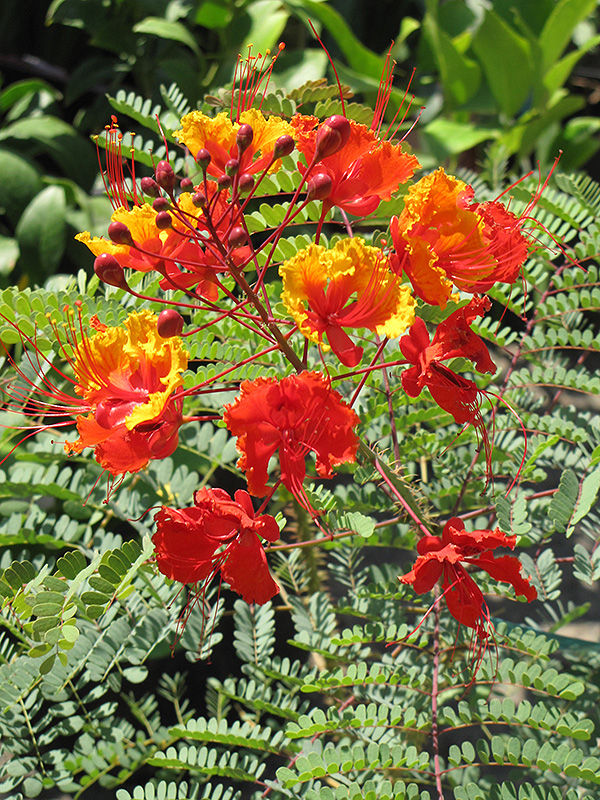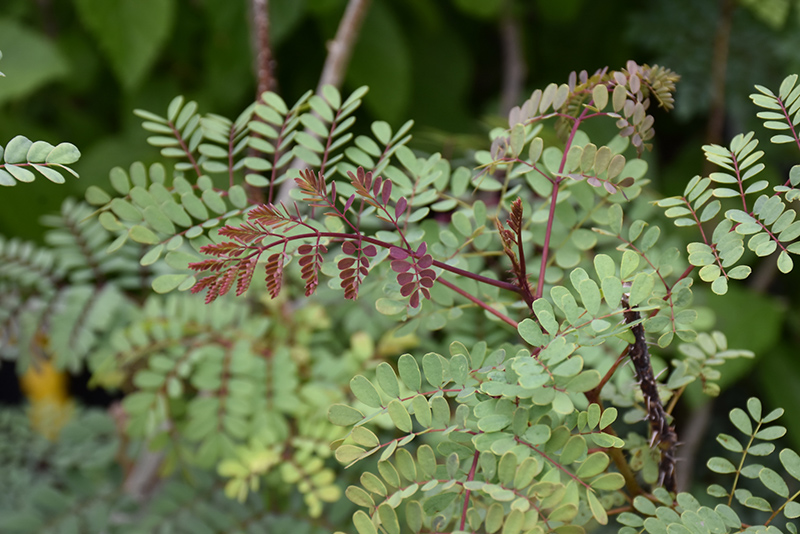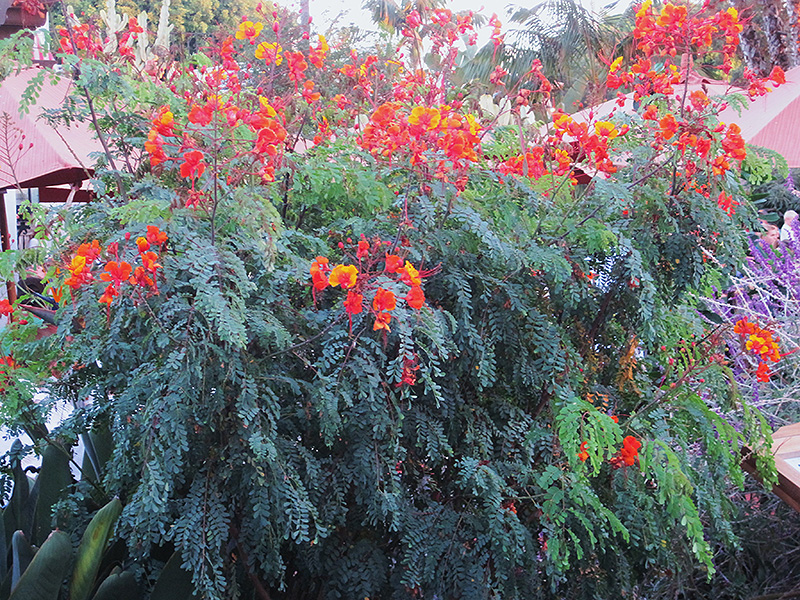Height: 15 feet
Spread: 10 feet
Sunlight:
![]()
Hardiness Zone: 9b
Other Names: Barbados Pride, Peacock Flower, Poinciana
Description:
This tropical shrub or small tree produces spectacular upright racemes of luminous yellow, orange, and red blooms that are long lasting; graceful foliage creates a wonderful texture; perfect for patio containers, or near walkways
Ornamental Features
Mexican Bird Of Paradise has attractive bluish-green evergreen foliage which emerges light green in spring on a plant with an upright spreading habit of growth. The tiny oval bipinnately compound leaves are highly ornamental and remain bluish-green throughout the winter. The fruits are showy tan pods displayed from early fall to early winter.
Landscape Attributes
Mexican Bird Of Paradise is an open multi-stemmed evergreen tropical plant with an upright spreading habit of growth. It lends an extremely fine and delicate texture to the landscape composition which can make it a great accent feature on this basis alone.
This is a relatively low maintenance tropical plant, and should only be pruned after flowering to avoid removing any of the current season's flowers. It is a good choice for attracting bees, butterflies and hummingbirds to your yard. Gardeners should be aware of the following characteristic(s) that may warrant special consideration;
- Spiny
Mexican Bird Of Paradise is recommended for the following landscape applications;
- Mass Planting
- Hedges/Screening
- General Garden Use
- Naturalizing And Woodland Gardens
- Container Planting
Planting & Growing
This plant is native to the tropics and prefers growing in moist environments with evenly warm conditions all year round. In our climate, it is usually grown as an outdoor annual in the garden or in a container. If you want it to survive the winter, it can be brought in to the house and provided with special care, and then returned to the garden the following season. In its preferred tropical habitat, as a shrub it can grow to be around 15 feet tall at maturity, with a spread of 10 feet. However, when grown as an annual or when overwintered indoors, it can be expected to perform quite differently, and its exact height and spread will depend on many factors; you may wish to consult with our experts as to how it might perform in your specific application and growing conditions.
This tropical plant should only be grown in full sunlight. It prefers to grow in average to moist conditions, and shouldn't be allowed to dry out. It may require supplemental watering during periods of drought or extended heat. It is not particular as to soil pH, but grows best in rich soils. It is somewhat tolerant of urban pollution. This species is not originally from North America.
Mexican Bird Of Paradise makes a fine choice for the outdoor landscape, but it is also well-suited for use in outdoor pots and containers. Its large size and upright habit of growth lend it for use as a solitary accent, or in a composition surrounded by smaller plants around the base and those that spill over the edges. It is even sizeable enough that it can be grown alone in a suitable container. Note that when grown in a container, it may not perform exactly as indicated on the tag - this is to be expected. Also note that when growing plants in outdoor containers and baskets, they may require more frequent waterings than they would in the yard or garden.



